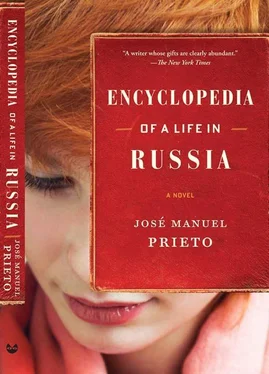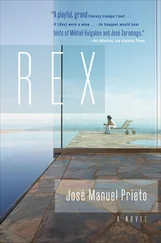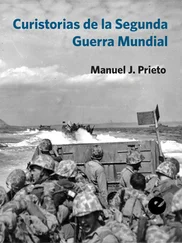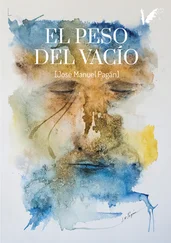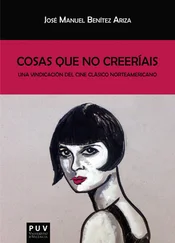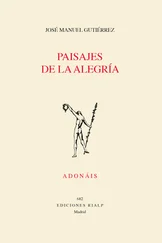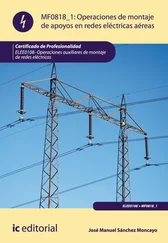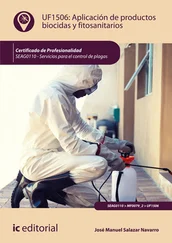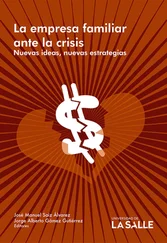Russian self-contemplation knows no bounds. When K** launched into one of those beautiful ROMANZAS with verses by Esenin, Tsvetaeva, and even Pushkin himself for lyrics, her eyes would sometimes fill with tears and she would interrupt the song to wonder aloud, “Are there other peoples whose souls are as sensitive, as highly strung and apt to resonate at the slightest breath of wind, as the Russian people?”
I would try to explain. I would pick up the guitar and sing this very beautiful song (one of the many that accompanied me throughout those years).
RUDI. The night before our trip to Nice we took a room in one of the YALTA hotels. At seven, as LINDA was dressing for her important stroll along the CATWALK (YALTA’S little seafront promenade would serve the purpose), I dialed room service, still a novelty in the Grand Duchy’s hotels. I asked for a bouquet of carnations for LINDA and stepped onto the balcony to contemplate the peak of Ai-Petri emerging from the clouds. Then, down below, alongside the garden’s cypresses, I noticed a flower stand that hadn’t registered during our arrival and resolved to go downstairs for the carnations myself.
I. The florist was listening to one of those horrible Muscovite ballads about scoundrels, pearly tears, apricot cheeks, black plums for eyes. (Each day spent in this country included hefty doses of this sort of vaudeville tune or gypsy dirge — from the Balkans or some such locale. No one turned his nose up at this lowbrow music and since the Russians were all very intelligent they always had a dazzling theory at the ready that could trip up even the cleverest objection; out would come the lecture about the inhuman suffering, the millions reposing in the Gulag. The long periods of time the intelligentsia spent in the work camps had forced them to imitate certain practices, and thus with honeyed voices they sang Гражданин начальник (Citizen Chief), which is how Aleksandr Isayevich (Solzhenitsyn) had once addressed his superior: Grazhdanin nachalnik, will you allow me to make a suggestion? Already holding, hidden in his bosom, the bomb of the Archipelago .
Nervous about the many faces from the south I saw there and the possibility of thieves, I put my hand in my pocket and my eyes SCANNED fifty meters of street in both directions. An impulse transporting the information that a black form stood off to one side advanced devastatingly along my optic nerve as my fingers probed the soft leather of my wallet, but they were reached by the urgent countersign and remained there, grasping it tightly: someone very cunning was spying on me.
His face was straight off a “wanted” poster, complete with the perpetual struggle against a heavy growth of beard. I concluded that he was one of those picaresque characters from the south who are in the flower business and also dabble in thievery. He understood that I was waiting for him to leave before taking out my wallet and turned indignantly on his very high heels, crossing his arms like the bad guy in an operetta, mumbling insults. My eyes went off in search of some officer of the law to alert, but there was no one under the hotel canopy except the bored bellboy who — anything was possible in the Muscovy — might be in cahoots with the scoundrel from the south.
II. It was RUDI! How could I have taken so long to recognize him? The dark cloud I’d felt pursuing us since our arrival in Crimea took on form and density and acquired a face. I remembered the suggestion he himself had given me that night in the Astoria, his wet lips. “You should go south, to YALTA. Lots of casinos are opening there. The season has just begun.” He’d mentioned this hotel in YALTA to me as a trap. RUDI realized that I’d recognized him, that his appearance on stage (the incarnation of the Baron de Charlus) had been premature, and that now he could no longer postpone the execution of the plan his carelessness had precipitated. Then he turned to me openly, smiled at me, and sent a signal to the crystalline lens of his eyeballs, which afforded me a glimpse of the sparkling metallic armature inside, the fearsome machinery.
III. It was RUDI! I spun on my heel, with a snap of the coattails of my frac. In the harbor, the steamboat that would take us to Nice let out an interminable blast and a band of seagulls suddenly veered out to the open sea. With RUDI and four of his men tearing after me, I dashed into the lobby, skating desperately along the polished floor, but at the magical chime of do-mi-sol the elevator doors opened and I saw LINDA about to step off, one pointy red pump already planted on the lobby floor. I slid another half meter, my face gaping at her, disfigured by a warning of danger I couldn’t manage to voice. LINDA stopped short, astonished, and I threw myself inside, grabbing her as I fell, and, yes, did manage to activate the button — RUDI’S eye, bloodshot with rage, glimpsed for an instant as the doors smoothly glided shut. Were we safe?
No. The doors reopen to reveal that we’ve landed in a dusty attic, a square of light shining down from a trapdoor, a climb onto the roof our only avenue of escape.
“Curses,” I shout. “We shouldn’t have trusted the LIFT!”
SAMOPAL (самопал). Due to a serious misunderstanding, Russia is reckoned a backward country and newspaper columnists calculate the number of years it lags behind the OCCIDENT. However, the IMPERIUM was not a country in the strict sense of the word; it was a land surveyor’s polygon full of objects, artifacts, and replicas that were precarious, makeshift: самопал. The enormous grenade that aroused such terror in the OCCIDENT was no more than a stage prop, a dummy: samopal.
Like the imposter who arrives in a beach resort for the wealthy, steps out of a flashy PACKARD, and makes a show of his luxurious suitcases with their reinforced steel corners, Russia, in the assembly of nations, launched little rockets toward the ceiling, melted steel over the white tablecloth, and laid out railway lines from the salad plate to the punch bowl’s ascending slope. Such manipulations provoked confusion and even an unconscious dread, as the prestidigitator of the moment inclined the billiard ball of his head to receive the bedazzled assembly’s applause. (It’s known that after one such function, in Berne, the Indonesian ambassador discovered a rabbit at his feet, chewing the edge of the tablecloth; when he tried to pick it up, its rubbery ears came off in his hand and the mother-of-pearl buttons rolled away, eye sockets empty.)
We lived surrounded by artifacts engineered for only the weakest pressures, mere appearance. In the buildings of the IMPERIUM, extremely inconvenient and unreliable LIFTS rose and fell, LIFTS that may have seemed old but were installed only yesterday. The IMPERIUM had everything it needed for a self-sufficient economy but all of it was shoddy in the extreme: the largest airline in the world, which was also the worst, the largest shoemaking industry and a considerable supply of individuals who might have been mistaken for barefoot Carmelites. It was a papier-mâché Utopia populated by unicorns manufactured in porous resin, light and graceful, but useless — yet in appearance nearly identical to the Japanese model from the last World’s Fair, that could rear on its hind legs and gallop at top speed and would vanish if touched by a female nonvirgin.
The IMPERIUM was, in essence, a modern country, but of a parallel modernity, the greatest installation in history. Socialist realism, so myopically criticized, was in fact the greatest and most important avant-garde movement of the century, but it was a total art that left no gap between itself and reality: a complete model of a universe. Those Occidental artists who fill twenty square meters of the Guggenheim with their “very daring” installations have never dreamed of working on this scale: one-sixth of the planet’s area covered with mobiles, ready-mades and urinals, all samopal : the Universal Installation. SCANNER. . . comme je passais seul devant le casino en rentrant à l’hôtel, j’eus la sensation d’être regardé par quelqu’un qui n’était pas loin de moi. Je tournai la tête et j’aperçus un homme d’une quarantaine d’années, très grand et assez gros, avec des moustaches très noires, et qui, tout en frappant nerveusement son pantalon avec une badine, fixait sur moi des yeux dilatés par l’attention. Il lança sur moi une suprême oeillade à la fois hardie, prudente, rapide et profonde, comme un dernier coup que l’on tire au moment de prendre la fuite, et après avoir regardé tout autour de lui, prenant soudain un air distrait et hautain, par un brusque revirement de toute sa personne il se tourna vers une affiche dans la lecture de laquelle il s’absorba, en fredonnant un air et en arrangeant la rose mousseuse qui pendait à sa boutonnière. . Puis rejetant en arrière son chapeau et laissant voir une brosse coupée ras qui admettait cependant de chaque côté d’assez longues ailes de pigeon ondulées, il exhala le souffle bruyant des personnes qui ont non pas trop chaud mais le désir de montrer qu’elles ont trop chaud. J’eus l’idée d’un escroc d’hôtel qui, nous ayant peut-être déjà remarqués les jours précédents [LINDA et moi], et préparant quelque mauvais coup, venait de s’apercevoir que je l’avais surpris pendant qu’il m’épiait; pour me donner le change, peut-être cherchait-il seulement par sa nouvelle attitude à exprimer la distraction et le détachement, mais c’était avec une exagération si agressive que son but semblait au moins autant que de dissiper les soupçons que j’avais dû avoir, de venger une humiliation. . Or:. . as I walked alone past the casino toward the hotel I had the feeling that someone was watching me from nearby. I turned my head and perceived a man in his forties, very tall and fairly broad, with a very black mustache, who was lightly tapping his pants with a cane in a nervous gesture and focusing upon me a pair of eyes dilated by attention. He shot me a final glance, at once daring, prudent, fast, and deep, like a last shot fired off before taking flight and then, after surveying the area around himself, adopted a distracted and haughty air and with a sudden spin of his entire body turned to read a theater poster, absorbing himself in this task as he hummed a tune and adjusted the rose in his lapel. . Then, pushing back his hat, thus exposing a brush cut that was very short but with undulating waves at the sides, he exhaled the sort of noisy sigh that is emitted not by those actually suffering from the heat but by those who wish to appear to be suffering from the heat.It occurred to me that this might be a hotel burglar who, having noticed [LINDA and me], and decided to plot some strike against us, had just realized I’d caught him unawares as he was spying on me; perhaps he had adopted this new attitude of distraction and indifference merely in order to throw me off track, but his stance was so aggressively exaggerated that his aim, maore than to dissipate any suspicions he may have inspired in me, seemed to be to avenge some humiliation. .
Читать дальше
